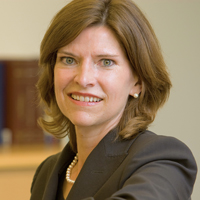By Ann Southworth

Ann Southworth
Most law schools do too little to educate their students about the legal profession and to help them find their places within it.
Most law schools do too little to educate their students about the legal profession and to help them find their places within it.Legal education generally emphasizes legal analysis and the content of law, divorced from the real-life settings in which lawyers practice.
Career services offices are not equipped to teach students all they need to know about what lawyers actually do and the organizations in which they work. Thus, students rarely enter the profession with a well-informed understanding of the variety of practice settings in which lawyers operate, the professional opportunities and ethical challenges of each, and the broader cultural and economic forces that are reshaping every sector of the profession.
They often select jobs based on inadequate and even inaccurate information, and too many of them are dissatisfied with their career choices.
At UC Irvine’s new law school (See “Irvine by Erwin: Can a top legal academic create a law school that is both innovative and elite?”), we have launched a new first-year course designed to educate students about the profession they are preparing to join. Roughly half of the course is devoted to examining different types of practice, drawing from a variety of disciplines, including law, sociology, economics, and psychology. For each practice type, we read the best available empirical accounts, analyze some of the relevant law governing lawyers, engage in role-playing exercises modeled on typical problems confronted in practice, and convene panels of prominent lawyers to discuss their work and experiences.
Our speakers will include leading lawyers from every sector, including prosecutors’ offices, public defender organizations, small, medium, and large private firms, corporate counsel offices, nonprofit organizations, legal aid, government agencies, and the judiciary. Our first two panels on criminal defense and prosecution, for example, will include a former U.S. Attorney, a local deputy D.A., a white-collar criminal defense lawyer, and a federal public defender. For each panel, our students will be primed to ask probing questions, drawing from the reading material, analysis of the relevant law, and the role-playing exercises.
This approach will help our students assess the “fit” between various types of practices and their own character traits, aptitudes, and values. It should also help them appreciate the important connection between lawyers’ workplaces and professional norms.
At a minimum, we expect our graduates to be more knowledgeable than most about the enormous variety of people and workplaces that comprise the American legal profession, factors that shape lawyers’ views about what professionalism means, and the economic, social and psychological factors that sometimes lead otherwise conscientious lawyers into trouble.
Ann Southworth is a professor of law and member of the founding faculty at the University of California, Irvine School of Law. Her scholarship focuses on the legal profession, especially lawyers who serve causes – their norms, professional identities, practices, organizations, and networks. Her book on advocates for conservative and libertarian causes, Lawyers of the Right: Professionalizing the Conservative Coalition, was recently published by the University of Chicago Press. She is currently teaching one section of a new Legal Profession course for the inaugural class at UC Irvine law school.